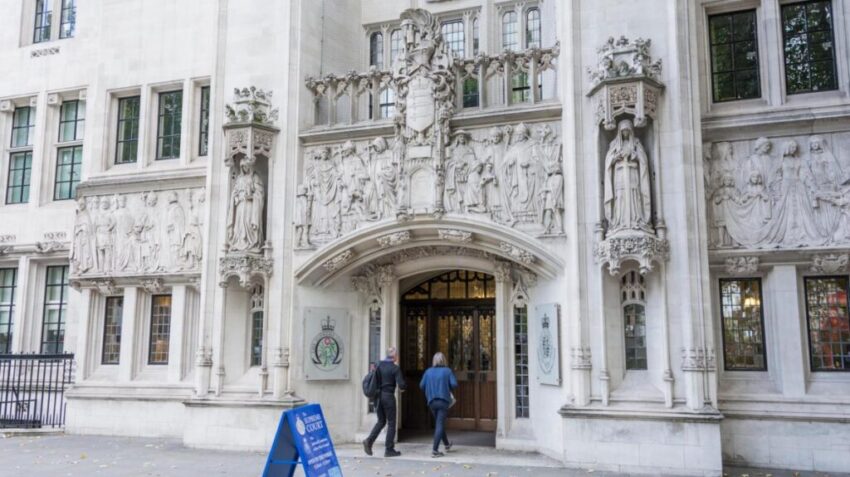
Tens of thousands of small businesses are set to receive insurance payouts covering losses in the first national lockdown, following a court ruling.
The Supreme Court found in favour of small firms receiving payments from business interruption insurance policies.
For some, it could provide the lifeline allowing them to trade beyond the coronavirus crisis.
The ruling could cost the insurance sector hundreds of millions of pounds.
In the lockdown of last spring, many small businesses made claims through business interruption insurance policies for loss of earnings when they had to close.
But many insurers refused to pay, arguing only the most specialist policies had cover for such unprecedented restrictions.
It was agreed that a selection of policy wordings should be tested in court, setting the parameters for what would be considered a valid claim.
The ruling provides guidance for a wider pool of 700 policies, potentially affecting 370,000 small businesses.
Speaking about the judgement, Steven Skiba, legal director and commercial disputes specialist at law firm, Shakespeare Martineau, commented: “The appeal ruling has landed in favour of businesses. This final word from the Supreme Court means that businesses and insurers are no longer in the dark when it comes to handling business interruption claims related to the coronavirus pandemic.
“As a result of the case being fast-tracked for an appeal in order to provide further clarity, many struggling businesses have still not received a pay-out. However, with the UK now in a third national lockdown, it’s likely that this decision will have come too late for some.
“The Supreme Court has set out the position on the construction (and so interpretation) of the disease clauses (about occurrence within a radius of a business premises), the prevention of access clauses (by public authority intervention) and the hybrid clauses that are a mixture of disease and prevention of access.
“For businesses looking to make a business interruption claim, a vital first step is to consider whether the disease clause set out in their individual policy wording provides cover, according to the Supreme Court’s decision. If so, they should secure expert support in gathering together the right evidence for aspects such as lost revenues, forecasted revenues and any expenses incurred. Closely reviewing information for the claims process provided by individual insurers is also vital to ensure the correct formatting and timings are followed, and to boost chances of making a successful claim.
“The Supreme Court also determined that the High Court was correct to apply certain counterfactual scenarios. A victory for business, this means that insurers cannot use components of the insured peril itself i.e. the local occurrence of the disease to adjust and reduce the value of any insurance cover.
“The question of whether business interruption policies cover COVID-19 -related losses is one of the most controversial and complex legal issues of the pandemic. This judgment now sets out how business interruption insurance wordings should work. Whilst the construction and interpretation of the clauses has been made easier by this decision, there will still be a number of grey areas, for example around challenges to trends clauses and how to interpret policy wording (even using the Supreme Court’s decision) where there will be further arguments with insurers that may end up before the courts. Ultimately though this decision is binding and provides persuasive guidance for the interpretation of policy wordings.”
https://www.bmmagazine.co.uk
Tagged with: BUSINESS NEWS • ECONOMIC NEWS • MAKE MONEY


